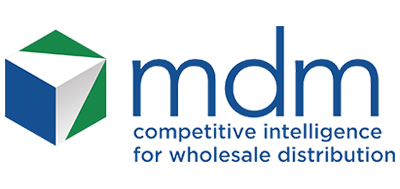It’s time to go beyond Human Resources and appoint a Chief Human Potential Officer in every organization.
Independent and family-owned distributors have shown us a revolutionary path, one where business isn’t just a platform for financial growth, but a breeding ground for personal and professional development.
We must embrace a new vision, one that nurtures every individual’s innate potential, helping them flourish within and beyond the confines of the workplace.
At Palmer Johnson Power Systems — a Sun Prairie, Wisconsin-based distributor of heavy-duty, off-highway equipment and parts — its vision is “to inspire growth, health and well-being in our people and the communities we serve.”
Those are anything but empty words for CEO Craig Swenson.
“When you’re around people you genuinely care about and feel for, you want to see them write their own story, and you want to see them be as successful as they want to be.”
Mary Klett, Senior Customer Support Manager, heeds that calling:
“One of the great things is they see potential in people, they see opportunity, and they see growth, and we go after it.”
We find ourselves at a juncture where our responsibility extends beyond mere financial prosperity for the business, and by extension the employees. Today, a shift is happening in the contract between employees and employers.
Over the course of my career, I have come to the undeniable conclusion that businesses are a platform for our people’s growth. I am not alone in that premise. At UnleashWD, our Future of Distribution research found that 95% of distributors believe that leaders must help our people not only do the job, but to thrive professionally and personally.
A Clear & Uncompromising Mandate
The mandate is clear and uncompromising: We must transcend the outdated paradigm of Human Resources and reimagine this pivotal business function as the visionary and transformative Department of Human Potential.
Guided by the leadership of a Chief Potential Officer, we will ignite a revolution that recognizes and nurtures the latent power within every individual.
What I am proposing is not a mere shift, but a decisive action toward an era where businesses don’t just manage resources, but unleash the unparalleled potential within each human being.
We as leaders have the responsibility and opportunity to help individuals grow into their full potential. To become the best version of themselves.
I am often asked to be a keynote speaker for company and association meetings, and when I present this idea, the energy in the room is palpable.
But to build a people-first business, we must encourage leaders to not only embrace humanity in the human resources function, but include it in their business and talent strategies for 2023 and beyond.
With that, we need to reframe, reposition and rethink the Human Resources function. Historically, HR has been the overseer of administration, compliance and benefits and often limited in their decision-making capabilities. It’s time to discard this outdated model, which views employees as assets to be managed.
Today’s Human Resources departments can bridge the gap between people and purpose.
Human Potential Manager. Human Potential Director. Chief Potential Officer. These are the titles of the future.
Let’s explore why.
In our Future of Distribution research, 77% of distributors agreed that the Human Resources function must become more strategic. And 71% say that the HR function must become more human-centric.
Robert Weed is just one example of a distributor that has elevated the role of HR. Steven Ramel, president at Robert Weed, is adamant that people come first in an organization, and that a top-down approach no longer works. “We completely turned the pyramid upside down.”
The foundation of Robert Weed’s transformation is their employees’ whole selves. Leadership overhauled the company in what they coined their “2.0 Transformation,” reinvesting in culture and their people. Robert Weed provides leadership and life-coaching programs to their employees to improve their emotional, physical, mental, social and financial well-being.
They provide this to all employees.
Leading the charge? Margie Rodino, who is Robert Weed’s Chief Culture Officer. At our People and Talent Summit earlier this year, Margie talked about the importance of ripping the Band-aid off old, outdated HR policies that didn’t serve the needs of their people. It was during this session that Margie said something that stuck with me. “Today, people want you to meet them where they are, not where you are. Where they are.”
If you’ve followed me on the We Supply America tour, meeting distributors across the country, you already know that I double down on why distribution businesses are platforms for people’s personal and professional growth. I am certain distribution businesses are a Force for Good. And helping employees fulfill their potential is one factor that makes them this Force For Good. Meet some of these forces in our just-launched season premiere of Season 3 of We Supply America.
Framework for Unleashing Potential
Over the past three seasons of We Supply America, we have uncovered endless examples of how distributors create jobs and pathways for purpose and potential, helping individuals become better versions of themselves. We’ve identified this as one of the superpowers of the noble independent distributor.
But people want more than perks. They seek a platform, a catalyst that enables them to chase their dreams, fulfill their goals and unlock their true potential.
Because when you strengthen your people, you strengthen your business. Said another way, when you grow your people, you grow your business.
When you help your people fulfill their potential, they accelerate the business fulfilling its potential. And when you help your people achieve personal breakthroughs, organizational breakthroughs are not far behind.
However, nearly 52% of distribution leaders I’ve surveyed say they do not have a strategic Human Resources executive in the C-Suite reporting directly to the CEO.
There’s historically been no HR playbook to follow in helping employees fulfill their God given potential.
Historically the HR playbook has been designed to manage people as resources or worse, as assets that lose value over time. Over the past three years of my We Supply America travels, I developed a framework to unlock your organization’s and your people’s POTENTIAL. The opportunity is here to build a business that is People First, one that allows individuals to flourish both personally and professionally. This framework dives deep into nine critical elements of how people can thrive in the workplace and beyond.
Empower HR (umm Human Potential) professionals to act as a steward for values and culture, making strategic decisions that meet the needs of their people and providing employees access to:
Beginning now, take decisive action to unleash the potential in each individual in your company. Here are nine foundational pillars that the Chief Human Potential Officer should embrace to help employees become better versions of themselves:
- Purpose and Meaning
- Opportunity for Growth
- Trust and Transparency
- Empowerment and Autonomy
- Nurturing Health and Well-Being
- Teamwork and Collaboration
- Innovation and Creativity
- Appreciation and Recognition
- Leadership and Mentorship
The future waits for no one, and the future is Human Potential.
Are you ready to unlock the human potential in your business?



